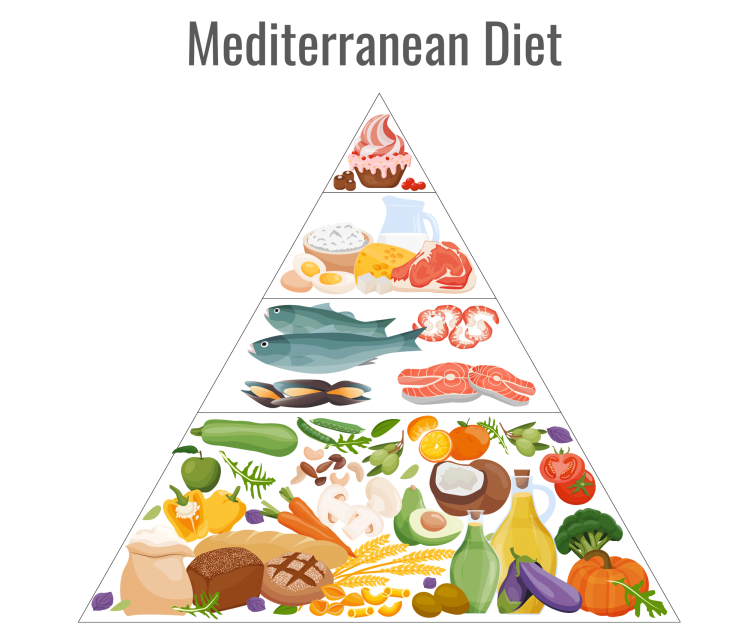The diet industry has a problem – many of their eating plans are impossible to maintain for more than a few weeks. They’re too restrictive, unpleasant, costly, or complicated for long-term use.
As such, even if they work, most people quit them long before reaching their target weight or body fat percentage, regaining whatever weight they’ve lost soon after. This gives rise to the term yo-yo dieting, where your weight goes down but soon comes back up again.
Switching diets won’t help, as while the “flavor” may change, most share the same faults. Feelings of hunger and deprivation mean that no diet works for long. Some people become serial dieters, hopping from one restrictive plan to another, doomed to fail over and over again.
Dieters are often blamed for their inability to lose weight, with lack of willpower being the most common accusation. However, when a diet is so bad that you hate every (tiny, bland) meal you eat, only a sadist would stick with it for more than a few days! After all, food should be one of life’s pleasures, not a source of stress and unhappiness.
In most cases, it’s the diet and not the dieter that’s the problem.
The good news is there is a diet that’s much easier to stick to. It’s not as radical as keto or restrictive as intermittent fasting, but that’s what makes it different – and better.
So, in this article, we take a look at the Mediterranean diet. It could be the last eating plan you ever need!
What is the Mediterranean Diet?

The Mediterranean diet is based on the foods traditionally eaten in the countries that border the Mediterranean Sea, including Portugal, coastal France, southern Spain, southern Italy, Crete, and much of Greece.
The populations in these countries have lower incidences of heart disease and other common illnesses and diseases, and the Mediterranean diet is often promoted as one of the best in the world. People who eat a Mediterranean diet generally live longer and are healthier than people who eat a standard American or Western diet (1).
While there is no set Mediterranean diet menu to follow, it typically promotes the consumption of:
- Fruits
- Vegetables
- Whole grains
- Legumes
- Nuts and seeds
- Unprocessed dairy
- Lean proteins, especially fish and chicken
- Heart-healthy fats and oils
- Herbs and spices
In contrast, foods that should be eaten rarely or in small amounts include:
- Processed foods
- Refined grains, e.g., white bread, white pasta, white rice, etc.
- Red meat
- Added sugars
- Alcohol
There is also an emphasis on preparing food yourself, using fresh seasonal ingredients, and eating mindfully rather than rushing your meals or eating on the go. Like life in a Mediterranean country, this is a lifestyle and not just another restrictive diet.
The Potential Benefits of the Mediterranean Diet
Changing your eating takes time, energy, and effort, so you’ll want to know the benefits before you start; is the Mediterranean diet worth following?
Here are the main potential benefits of the Mediterranean diet:
Protection against heart disease
Heart disease is one of the leading causes of death in developed countries. It is characterized by the narrowing of cardiac arteries and poor blood supply to the heart. Linked to diet and lifestyle factors, heart disease can cause heart attacks, strokes, hypertension, and premature death.
The grains, vegetables, and healthy oils in the Mediterranean diet are believed to offer a lot of protection against heart disease and other conditions of the circulatory system (2). Olive oil, a Mediterranean diet staple, is considered to be especially heart-healthy.
Reduced risk of diabetes
Diabetes is a disease where the body cannot metabolize carbohydrates and sugar properly. This causes a rise in blood glucose levels which can cause damage to almost everywhere blood flows, including the heart, kidneys, extremities, eyes, and sensory nerves. People with diabetes risk dying prematurely, even if the condition is well managed.
There are two types of diabetes – type one and type two. Type one diabetes is an idiopathic autoimmune disease of the pancreas that causes too little insulin to be produced. It is often inherited but can develop when type two diabetes is mismanaged.
In contrast, type two diabetes is usually caused by a poor diet and sedentary lifestyle. In type two diabetes, the cells become insulin resistant, so blood glucose levels remain dangerously high.
While type one diabetes is currently incurable, the low-sugar Mediterranean diet will make it easier to manage. It could also help prevent type two diabetes from developing (3).

Reduced risk of cancer
Cancer incidence is statistically lower in people living within the Mediterranean region. The rate of cancer survival is also significantly higher. Studies have shown a strong link between the Mediterranean diet and a lower risk of death from many types of cancer (4).
Protection against cognitive decline
Age-related cognitive decline is a growing problem, and rates of dementia and Alzheimer’s disease are on the rise. Symptoms are developing earlier and are becoming more severe in many countries.
That said, the Mediterranean diet looks promising for minimizing and even preventing age-related cognitive decline and is as brain-friendly as it is heart-friendly (5). This is due to the high nutrient value of the core foods plus the anti-inflammatory effect of ingredients such as olive oil.
Weight loss and weight control
While any diet that creates a caloric deficit will result in weight loss, studies suggest that the Mediterranean diet could be one of the best long-term weight management diets around (6). This is because it’s not overly restrictive, meals are filling and tasty, and many of the foods are low in calories.
In short, the Mediterranean diet takes the pain out of dieting, and you’re more likely to want to follow it and stick to it for extended periods.
A longer life
With all its known health benefits, it should be no surprise that the Mediterranean diet could help you live longer (7). Numerous studies have shown that people in rural Mediterranean countries live longer, healthier lives than their American counterparts.
Of course, other factors also influence longevity, such as exercise, medical history, health care, stress, etc., but it seems that if you want to live a long, healthy life, the Mediterranean diet could help. The Mediterranean region contains several so-called “Blue Zones,” where people have the longest lifespans, including Sardinia in Italy and Ikaria in Greece.
How to Follow the Mediterranean Diet
There is no set plan to follow for the Mediterranean diet, but this table offers some guidelines:
| 1 | Eat more: | Vegetables, fruits, nuts, seeds, legumes, potatoes, whole grains, herbs, spices, fish, seafood, and extra virgin olive oil |
| 2 | Consume in moderation: | Poultry, eggs, cheese, yogurt, red wine* |
| 3 | Eat less or avoid: | Red meat, sugar-sweetened beverages, added sugars, processed meat, refined grains, other highly processed foods, beers, and liquors |
* Drinking red wine is optional, and you don’t have to start drinking it if you don’t want to.
Base your meals on the following foods and ingredients, adjusting portion sizes as required:
- Dairy: cheese, yogurt, milk
- Eggs: chicken, quail, and duck eggs
- Fish and seafood: salmon, sardines, trout, tuna, mackerel, shrimp, oysters, clams, crab, mussels
- Fruits: apples, bananas, oranges, pears, strawberries, grapes, dates, figs, melons, peaches
- Healthy fats: extra virgin olive oil, olives, avocados, and avocado oil
- Herbs and spices: garlic, basil, mint, rosemary, sage, nutmeg, cinnamon, pepper
- Legumes: beans, peas, lentils, pulses, peanuts, chickpeas
- Nuts, seeds, and nut butters: almonds, walnuts, macadamia nuts, hazelnuts, cashews, sunflower seeds, pumpkin seeds, almond butter, peanut butter
- Poultry: chicken, duck, turkey
- Vegetables: tomatoes, broccoli, kale, spinach, onions, cauliflower, carrots, Brussels sprouts, cucumbers, potatoes, sweet potatoes, turnips
- Whole grains: oats, brown rice, rye, barley, corn, buckwheat, whole wheat bread, and pasta

Meanwhile, you should avoid the following while on the Mediterranean diet:
- Added sugar: added sugar, candies, ice cream, table sugar, syrup, and baked goods
- Highly processed foods: fast food, convenience meals, microwave popcorn, granola bars
- Processed meat: processed sausages, hot dogs, deli meats, beef jerky
- Refined grains: white bread, pasta, tortillas, chips, crackers
- Trans fats: found in margarine, fried foods, and other processed foods
Drinks to include:
- Water
- Coffee and tea, but with limited sugar or cream
- Small to moderate amounts of red wine, and only to complement a meal
- Fresh fruit juices without added sugar
Drinks to limit or avoid:
- Beer and hard liquor
- Sugar-sweetened beverages, such as sodas, which contain a lot of added sugar
- Fruit juices with added sugar
- High-sugar coffee or tea-based drinks
Sample Mediterranean Diet Menu
Armed with all this information, you should have no problem creating delicious, nutritious, healthy Mediterranean meals. But, to get you started and maybe give you some ideas and inspiration, here is a sample one-day menu. Adjust the portion sizes to meet your nutritional needs.
- Breakfast: Natural Greek yogurt and diced fresh strawberries, topped with chopped walnuts and raw honey.
- Lunch: Wholegrain tuna sandwich with hummus and raw vegetables, e.g., carrot sticks, cucumber, sliced tomato, etc.
- Dinner: Grilled chicken breast with a large green salad, olive oil, balsamic vinegar, mixed seeds, and wholegrain pitta bread.
- Snacks: Fresh fruit, e.g., apples and bananas, tuna or salmon pouches, raw nuts, peanut butter and celery sticks, or mixed raw nuts and seeds.

Mediterranean Diet FAQs
Do you have a question about the Mediterranean diet or healthy eating in general? No problem, because we’ve got all the answers!
1. Is the Mediterranean diet a weight loss diet?
The Mediterranean diet is not specifically a weight loss diet. Instead, it’s more of a healthy way of eating. That said, you can use it for weight loss, and it’ll probably be very effective for this purpose.
To lose weight with the Mediterranean diet, you must ensure you have a calorie deficit and combine your diet with some regular workouts to speed up fat loss. Most people will lose 1-2 pounds a week with a 500-1000 calorie daily deficit.
The foods in the Mediterranean diet tend to be tasty, nutritious, and filling, so the eating plan lends itself well to weight loss.
2. Does the Mediterranean diet contain enough protein to support muscle building?
While protein is NOT a staple of the Mediterranean diet, that doesn’t mean you can’t get enough to support muscle building. It’s generally accepted that most exercisers need about 0.7 to 1.0 grams of protein per pound of body weight. Consuming more fish, chicken, eggs, nuts, beans, and dairy will ensure you get enough of what you need.
Tip: Determine your protein requirements with this easy-to-use calculator.
3. How long does the Mediterranean diet supposed to last?
Unlike many diets, which are designed for a week or a month, the Mediterranean diet can be used for as long as you want – even forever. After all, entire populations follow variations of the Mediterranean diet every day of their lives. To them, it’s just food!
So, don’t think of the Mediterranean diet as a short-term health fix or weight loss plan. Instead, adopt it as your new way of eating for the foreseeable future. The longer you stay on the Mediterranean diet, the more significant its effects will be.
4. Am I allowed cheat days on the Mediterranean diet?
The Mediterranean diet is not overly structured or restrictive. It’s more like a list of sensible and sustainable nutritional principles and guidelines, so no food is actually banned. Instead, just build most of your meals around the nutritious foods available in the Mediterranean region.
Does that mean you can’t have the occasional cheat meal or sweet dessert? Of course not!
However, if you want to be healthy and maintain or lose weight, you should keep your cheats to a minimum, eating healthily 90% of the time.
So, assuming you eat 28 meals and snacks a week (three meals and one snack per day), you can safely allow yourself 2-3 modest-size cheats without derailing your diet.
5. Is there a workout to go with the Mediterranean diet?
While there is no official Mediterranean workout, one of the countries in the Mediterranean region, Greece, gave us calisthenics. So, while any workout will multiply the effects of the Mediterranean diet, bodyweight training could be the most authentic workout to combine with this healthy eating plan.
People in the rural Mediterranean region also walk a lot, so clocking up 10,000 steps or more per day will also be beneficial.
Related: How to Walk For Fitness and Fat Loss
Mediterranean Diet – Closing Thoughts
There is no single, official Mediterranean diet. Instead, it’s a set of general nutritional guidelines based on how people living in the Mediterranean region eat. High in seasonal vegetables and fruits, whole grains, lean proteins, and healthy fats and oils, it’s one of the most heart-friendly diets in the world and is strongly linked to increased longevity.
The Mediterranean diet is not prescriptive or restrictive, and the foods are filling and nutritious. Eating like a Mediterranean resident probably won’t feel like a diet at all!
That said, if you want to lose weight with the Mediterranean diet, you’ll still need to control your portion sizes and watch your calorie intake. A calorie deficit is a must for any successful weight loss plan. However, Mediterranean diet meals tend to be satisfying and filling, so hunger shouldn’t be such a problem.
So, if you want to eat for better health and weight loss and don’t want an eating plan you’ll probably quit in a week, give the Mediterranean diet a try. Unlike almost every other diet, it’s designed for long-term use.
References:
- Lăcătușu CM, Grigorescu ED, Floria M, Onofriescu A, Mihai BM. The Mediterranean Diet: From an Environment-Driven Food Culture to an Emerging Medical Prescription. Int J Environ Res Public Health. 2019 Mar 15;16(6):942. doi: 10.3390/ijerph16060942. PMID: 30875998; PMCID: PMC6466433. https://www.ncbi.nlm.nih.gov/pmc/articles/PMC6466433/
- Huedo-Medina TB, Garcia M, Bihuniak JD, Kenny A, Kerstetter J. Methodologic quality of meta-analyses and systematic reviews on the Mediterranean diet and cardiovascular disease outcomes: a review. Am J Clin Nutr. 2016 Mar;103(3):841-50. doi: 10.3945/ajcn.115.112771. Epub 2016 Feb 10. PMID: 26864357. https://pubmed.ncbi.nlm.nih.gov/26864357/
- Dinu M, Pagliai G, Casini A, Sofi F. Mediterranean diet and multiple health outcomes: an umbrella review of meta-analyses of observational studies and randomized trials. Eur J Clin Nutr. 2018 Jan;72(1):30-43. doi: 10.1038/ejcn.2017.58. Epub 2017 May 10. PMID: 28488692. https://pubmed.ncbi.nlm.nih.gov/28488692/
- Morze J, Danielewicz A, Przybyłowicz K, Zeng H, Hoffmann G, Schwingshackl L. An updated systematic review and meta-analysis on adherence to Mediterranean diet and risk of cancer. Eur J Nutr. 2021 Apr;60(3):1561-1586. doi: 10.1007/s00394-020-02346-6. Epub 2020 Aug 8. PMID: 32770356; PMCID: PMC7987633. https://www.ncbi.nlm.nih.gov/pmc/articles/PMC7987633/
- Petersson SD, Philippou E. Mediterranean diet, cognitive function, and dementia: a systematic review of the evidence. Adv Nutr. 2016 Sep 15;7(5):889-904. doi: 10.3945/an.116.012138. PMID: 27633105; PMCID: PMC5015034. https://www.ncbi.nlm.nih.gov/pmc/articles/PMC5015034/
- Poulimeneas D, Anastasiou CA, Santos I, Hill JO, Panagiotakos DB, Yannakoulia M. Exploring the relationship between the Mediterranean diet and weight loss maintenance: the MedWeight study. Br J Nutr. 2020 Oct 28;124(8):874-880. doi: 10.1017/S0007114520001798. Epub 2020 May 21. PMID: 32436489; PMCID: PMC9105806. https://pubmed.ncbi.nlm.nih.gov/32436489/
- Martinez-Gonzalez MA, Martin-Calvo N. Mediterranean diet and life expectancy; beyond olive oil, fruits, and vegetables. Curr Opin Clin Nutr Metab Care. 2016 Nov;19(6):401-407. doi: 10.1097/MCO.0000000000000316. PMID: 27552476; PMCID: PMC5902736.


